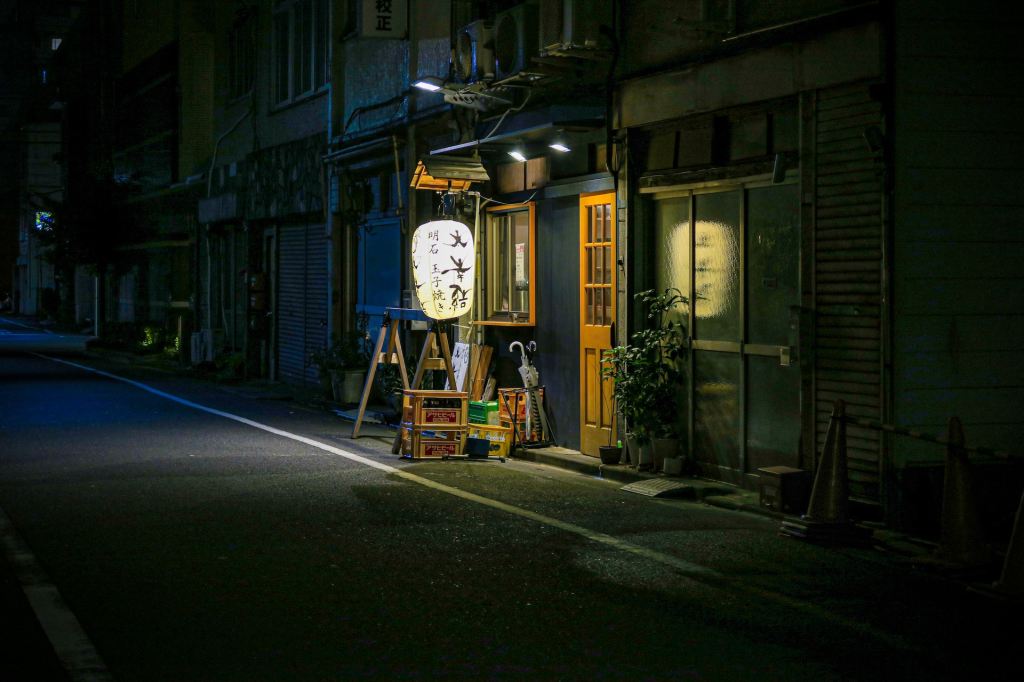Tokyo, a city that seamlessly blends tradition with modernity, has served as a captivating backdrop in numerous films, offering a rich tapestry of visuals and narratives to filmmakers. The cinematic portrayal of Tokyo often oscillates between the serene beauty of its historic sites and the pulsating energy of its futuristic urban landscapes.

Films like the dreamlike “Stray Dog” (1949), directed by Akira Kurosawa, explore the impact of poverty and desperation on society in post-war Tokyo. Kurosawa’s masterful storytelling and gritty atmosphere, while Shohei Imamura’s “The Insect Woman” (1963) highlighted the effect on women navigating the same period. Exploring themes of societal change, survival, and the resilience of women. Imamura’s gritty realism and complex character portrayals make it a compelling study of human nature.
Anime films, such as those by renowned director Hayao Miyazaki, often capture Tokyo’s fantastical essence. “Spirited Away” (2001) transports viewers into a magical realm inspired by Tokyo’s bathhouses, while “Tokyo Godfathers” (2003) by Satoshi Kon weaves a heartwarming tale against the city’s snowy streets during Christmas. The cyberpunk genre frequently explores Tokyo’s high-tech future, exemplified by films like “Akira” (1988). Its dystopian portrayal of a post-apocalyptic Tokyo with a sprawling metropolis and dark alleyways has influenced the aesthetic of numerous sci-fi films.

On the other hand, Satoshi Miki’s “Adrift in Tokyo” (2007), follows a unique journey between a debt-ridden student and a mysterious debt collector. Set against the backdrop of Tokyo’s vibrant streets, the film masterfully blends comedy and drama, offering a poignant exploration of human connection and redemption. While Kiyoshi Kurosawa’s “Tokyo Sonata” (2008) follows a middle-class family in the Japanese mega-city, whose lives unravel in unexpected ways. Delving deep into the themes of societal expectations and personal liberation in contemporary Japan.

Lost in Translation
(2003)
Directed by Sofia Coppola in 2003, is a poignant exploration of loneliness and connection set against the backdrop of Tokyo. The film follows the chance encounter between two lonely souls, Bob Harris (Bill Murray), a fading movie star, and Charlotte (Scarlett Johansson), a young woman questioning her life’s direction. As they navigate the unfamiliarity of a foreign city and its culture, a unique and profound bond develops. The film beautifully captures the transient nature of life and the universal struggle to find meaning and connection. With its subtle storytelling, evocative cinematography, and outstanding performances, “Lost in Translation” remains a cinematic masterpiece.

Akira
(1988)
“Akira,” released in 1988, is a groundbreaking Japanese animated film directed by Katsuhiro Otomo. Set in a dystopian Tokyo in 2019, the film unfolds in the aftermath of a psychic explosion that devastates the city. It follows Kaneda, a biker, and Tetsuo, his friend with latent psychic abilities, as they navigate a complex plot involving government experiments, rebellion, and the mysterious entity known as Akira. Renowned for its stunning animation, intense action sequences, and thought-provoking narrative, “Akira” has become a cult classic. It not only influenced anime and cyberpunk genres but also left a lasting impact on global popular culture.

Tokyo Story
(1953)
“Tokyo Story” is a timeless Japanese film directed by Yasujirō Ozu in 1953. This poignant masterpiece revolves around an elderly couple, Shukichi and Tomi, who travel from their rural home to visit their grown children in bustling Tokyo. The narrative subtly explores generational gaps, societal changes, and the inevitability of ageing. Ozu’s meticulous framing and deliberate pacing enhance the emotional impact, portraying a quiet reflection on family dynamics and the fleeting nature of life. “Tokyo Story” remains a cinematic gem, revered for its understated beauty and profound exploration of human relationships, leaving a lasting impression on audiences worldwide.

Spirited Away
(2001)
“Spirited Away,” directed by Hayao Miyazaki, is a captivating Japanese animated film that takes viewers on a mesmerizing journey through a fantastical world. The story follows Chihiro, a young girl trapped in a mysterious and magical realm ruled by spirits and gods. As she navigates this ethereal landscape, Chihiro encounters strange creatures, undergoes personal growth, and unravels the secrets of the spirit world. With breathtaking animation, a compelling narrative, and Miyazaki’s signature blend of fantasy and depth, “Spirited Away” has earned acclaim worldwide. Its timeless themes of courage, friendship, and the human spirit continue to resonate, making it a beloved masterpiece in the realm of animated cinema.

Godzilla
(1954)
“Godzilla (1954), directed by Ishirō Honda, is a landmark Japanese monster film that introduced the iconic giant reptilian creature to the world. Emerging from the depths of the Pacific Ocean as a metaphor for the consequences of nuclear weapons, Godzilla wreaks havoc on Tokyo, symbolizing the trauma of Hiroshima and Nagasaki. The film’s dark and sombre tone reflects post-war anxieties, delivering a powerful message about the destructive nature of humanity. Godzilla’s design, created by Eiji Tsuburaya, remains a cultural touchstone, and the film’s impact extends beyond the kaiju genre, influencing countless monster movies and shaping Godzilla’s enduring legacy.”

In conclusion, Tokyo’s cinematic representation is as varied as the city itself. From intimate dramas to futuristic epics, filmmakers continue to find inspiration in Tokyo’s unique blend of tradition and modernity, making it a perennially fascinating subject for the silver screen.
Comment below and let me know your favourite movie set in Tokyo


Leave a comment